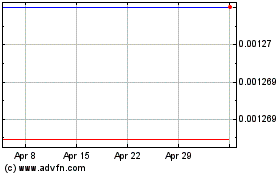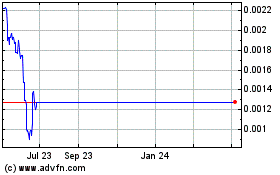Is The Biden Administration Behind Attack On Crypto?
16 February 2023 - 7:08AM
NEWSBTC
The attack on crypto projects is sanctioned from the very top of
the Biden administration, a source who didn’t want to be named has
said. The Biden Administration Sanctioned The Attack On Crypto
Talking to crypto podcaster Tony Edwards, host of “Thinking
Crypto,” the source said the operation codename Chokepoint 2.0
expressly targets cryptocurrency projects, most of which are rooted
in the United States and continue to offer citizens access to
various products. 1/ 🚨Important🚨 I spoke to a source who cannot be
named and they gave me insight into the attack on #Crypto aka
Operation Chokepoint 2.0. This person worked in Gov and now in the
crypto industry. 🧵below — Tony Edward (Thinking Crypto Podcast)
(@ThinkingCrypto1) February 14, 2023 The source, who previously
worked in the government before branching out to crypto, said
leaders approved the crypto attack in effect in the United States.
The “negative” attitude from the Biden administration stems from,
among others, Janet Yellen, the Secretary of the Treasury, who is
known to be against crypto and Bitcoin, and Gary Gensler, the head
of the Securities and Exchange Commission (SEC). Related
Reading: Blockchain Association Files Amicus Brief, Wants To Stem
SEC’s ‘Regulation By Enforcement’ Trend For this reason, top
companies, such as crypto exchange Kraken, Binance, and others,
have been under pressure. The crypto market has ignored these
attacks for the time being, as reflected by the price action of
Bitcoin and other cryptocurrencies. Reportedly, Gary wants
more power to be given to the SEC. Furthermore, talk of the Federal
Reserve eventually issuing a stablecoin has come into the picture.
The source said that projects issuing stablecoins, including Paxos
and Circle, undermine the Fed and the broader banking industry
since it makes money control challenging. Stablecoins, it is said,
“won’t usurp the digital dollar.” The vigor demonstrated by
officials from the Securities and Exchange Commission (SEC), the
Commodity Futures Exchange Commission (CFTC), and various agencies,
including the New York Department of Financial Services (NYDFS), is
because they know there “will be no consequences, at least for
now,” the source claimed. SEC Worrying Crackdown On
Cryptocurrency Projects The SEC has been cracking down on various
cryptocurrency projects, claiming that they breached regulations in
the United States and are actively offering unregistered
securities. Ripple Inc., whose officials, including Bradley
Garlinghouse, were earlier accused of raising $1.3 billion from
selling XRP, which the SEC claims is an unregistered security. In
recent weeks, the SEC settled with Kraken, a cryptocurrency
exchange, for $30 million with an agreement that they had to close
down their crypto as a staking service in the United States.
Related Reading: SEC Goes After Ethereum Staking, But What Happens
To All The Staked ETH? The agency also won a protracted case
against LBRY, a file-sharing and payment network. A District Court
in New Hampshire agreed with the SEC that LBRY sold unregistered
securities when they issued LBC to users. As a result, the SEC had
the right to give a permanent injection against the sale of the
project’s token while also asking for disgorgement for all fees
received with interest. Paxos, the firm behind the Binance branded
stablecoin BUSD, also received a Wells notice from the SEC. Gary
Gensler and his team are convinced BUSD is an unregistered
security. The NYDFS also requested them not to issue any new
tokens. Feature image from AP /Susan Walsh, Chart from
TradingView
(COIN:XCNNUSD)
Historical Stock Chart
From Dec 2024 to Jan 2025

(COIN:XCNNUSD)
Historical Stock Chart
From Jan 2024 to Jan 2025

Real-Time news about (Cryptocurrency): 0 recent articles
More Chain News Articles